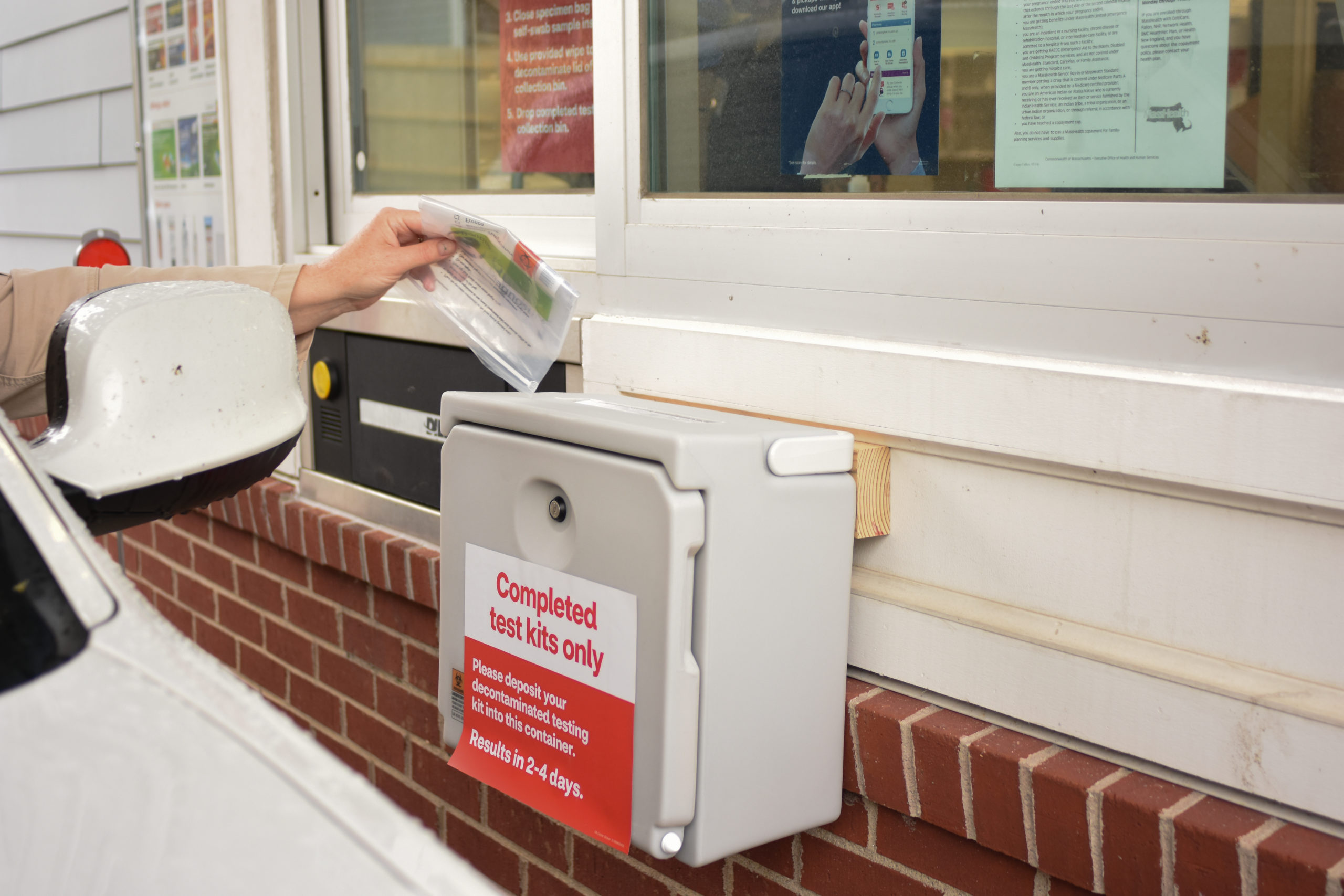With the first phase of Connecticut”™s three-phased approach to reopening achieved today, Gov. Ned Lamont and his administration are turning their attention to June 20, when a host of other businesses and services ”“ including hotels, gyms, movie theaters, and some indoor dining at restaurants ”“ are expected to become available.
 Meanwhile, a battle appears to be brewing with the state”™s two casinos over when they should be allowed to reopen.
Meanwhile, a battle appears to be brewing with the state”™s two casinos over when they should be allowed to reopen.
Subject to change if the situation by then warrants, businesses allowed to open on June 20 also include all personal services; outdoor amusement parks; outdoor concerts, entertainment and events (limited to a maximum of 50 people); bowling alleys; social clubs; and museums, zoos and aquariums; “select” youth sports; and public libraries.
In addition, all summer day camps will be allowed to open on June 22, while nonresidential workforce programs and nonresidential clinical/lab classes will be available by mid-June. K-12 summer schools may open on July 6, while other nonresidential programs, graduate programs and undergrad resident small-scale pilot programs can become available sometime in July-August.
Still to be determined are when undergrad residential programs, boarding schools and K-12 schools will be allowed to open in the fall.
The five criteria that must be met by June 20 are declining COVID-19 transmissions, measured by having less than 100-bed net increase in hospitals in the last week of Phase 1; conducting 100,000 tests per week, 50% of which must be contact tracing tests completed within 48 hours; rules and regulations disseminated to the relevant businesses two weeks prior to reopening; implementation of a testing plan for key workers and high-risk communities; and less than 20% of hospital beds occupied by COVID patients against the total peak bed capacity.
 Enforcement protocols for Phase 2 businesses, as well as for those opening during Phase 1, will be delegated to police, local public health departments, and each municipality”™s chief elected official. A first violation of safety protocols will result in a warning; a second and/or “egregious” violation will be referred by police to the local health department and mayor or first selectman, who may order the business”™s closure.
Enforcement protocols for Phase 2 businesses, as well as for those opening during Phase 1, will be delegated to police, local public health departments, and each municipality”™s chief elected official. A first violation of safety protocols will result in a warning; a second and/or “egregious” violation will be referred by police to the local health department and mayor or first selectman, who may order the business”™s closure.
The final phase, which Lamont said will take place at least four weeks after Phase 2 launches, will include bars; indoor events, amusement parks and arcades; and additional outdoor events, with capacity maxed at 100 people. The governor said revised and additional guidance on Phase 3 would be made available “over the course of the next month or so.”
Clash with casinos
Both the Mohegan Sun and Foxwoods casinos, closed since March 17, announced today that they will begin reopening portions of their reservations on June 1, and will observe physical distancing and incorporate protective equipment “consistent with or exceeding the state’s phased guidance and safety protocols,” according to a statement.
 Neither property will open its concert venues, buffets or poker rooms, and tenant restaurants will be open for take-out only. Additionally, the casinos will be catering to Connecticut and Rhode Island residents only. No out-of-state marketing to New York or Massachusetts will take place at either property, and no out-of-state buses will be accepted.
Neither property will open its concert venues, buffets or poker rooms, and tenant restaurants will be open for take-out only. Additionally, the casinos will be catering to Connecticut and Rhode Island residents only. No out-of-state marketing to New York or Massachusetts will take place at either property, and no out-of-state buses will be accepted.
“We have spent the past 10 weeks putting extraordinary measures in place,” said Mohegan Tribe Chairman James Gessner, “including cutting edge technology to protect the safety and health of all individuals who walk through the doors of Mohegan Sun as well as to ensure the safety of our community as a whole.
“The new guidelines, which were shared with state officials weeks ago, are based off recommendations from experts nationally and around the globe and have been implemented at several of our other resort destinations across the country ”“ some of which are now open or will be later this month,” he added. “As we enter our ”˜new normal,”™ we are excited to welcome back our team members who are an extension of our Mohegan family and to once again begin working with many of our local partners and businesses to help stimulate the Connecticut economy.”
The chairman of the Mashantucket Pequot Tribal Nation, which operates Foxwoods, took exception to remarks made at yesterday”™s briefing by health expert Zeke Emanuel.
Emanuel, who is head of the Department of Medical Ethics & Health Policy at the University of Pennsylvania, said that the number of employees and GDP represented by Foxwoods and Mohegan Sun are “not worth the risk to people”™s health” at the moment, and that he was “nervous” about the prospect of their reopening in the near term.
Mashantucket Tribal Chairman Rodney Butler ”“ a member of the Reopen Connecticut Advisory Group ”“ characterized those comments as “profoundly offensive and uninformed.”
“The broad economic impact of both Foxwoods and Mohegan Sun is well documented,” Butler said. “We are two of the state’s largest employers, with more than 12,000 workers, not including those employed by our expansive supply chain,” Butler said. “Last year, we contributed $250 million to the state in revenue share.”
Lamont and Dr. Albert Ko, co-chair of the Advisory Group, both expressed their disagreement with the casinos’ reopening on June 1. Ko called the prospect “the proverbial perfect storm” for an outbreak, given the facilities’ enclosed areas, difficulties in maintaining social distancing, and what could be insufficient air circulation.
“The risk of an outbreak is enormous,” Ko said, “and could have large ramifications” throughout the Northeast, as casino visitors return to their homes.
The state and the casinos have had “a great partnership together going back for decades,” Lamont said. “We’re going to work this out.”
While the tribes are sovereign nations ”“ and not fully under the direction of the state ”“ Lamont said that if his “bully pulpit” is insufficient to prevent a June 1 reopening, “I think I’m obligated” to advise potential patrons of visiting due to the safety concerns.
State statistics
Over the last 24 hours, the state conducted another 5,198 tests and recorded 587 more positive cases, bringing those respective totals to 190,718 and 39,017. Hospitalizations fell by 27 to 887, while deaths increased by 57 to 3,529.
Fairfield County now has 14,719 positive cases, 1,167 deaths and 272 hospitalizations.
Stamford has the most positive COVID-19 cases in the state, with 3,063, followed by Bridgeport (3,042), New Haven (2,260), Hartford (2,028), Norwalk (1,924), Waterbury (1,759), Danbury (1,634), West Haven (978), Hamden (886), New Britain (815), Greenwich (760), and Stratford (736).
D.C. DEVELOPMENTS
The House of Representatives will vote next week on legislation that would extend the time that businesses are allowed to rehire employees and still qualify for loan forgiveness under the Paycheck Protection Program (PPP). The current deadline is June 30.

The legislation is the brainchild of U.S. Rep. Dean Phillips (D-Minnesota), who announced the standalone bill following the House”™s approval of a new, $3 trillion coronavirus relief bill. The latter faces long odds of being passed by the Republican-controlled Senate.
“Securing a bipartisan vote on this important and time-sensitive legislation makes me more comfortable voting in favor” of the larger package, Phillips said in a statement. Given the prospects of long negotiations between the two parties over the $2 trillion package, Phillips said he believed a standalone PPP bill would have a better chance of passing quickly.
The numbers
As of this writing, there are over 1.54 million positive cases and more than 92,600 virus-related deaths in the U.S., with about 300,000 recovered. Globally, there are nearly 5 million positive cases and about 326,000 deaths, with over 1.72 million recovered.





















